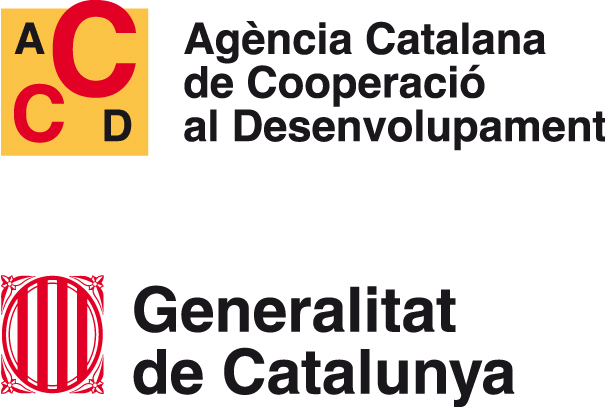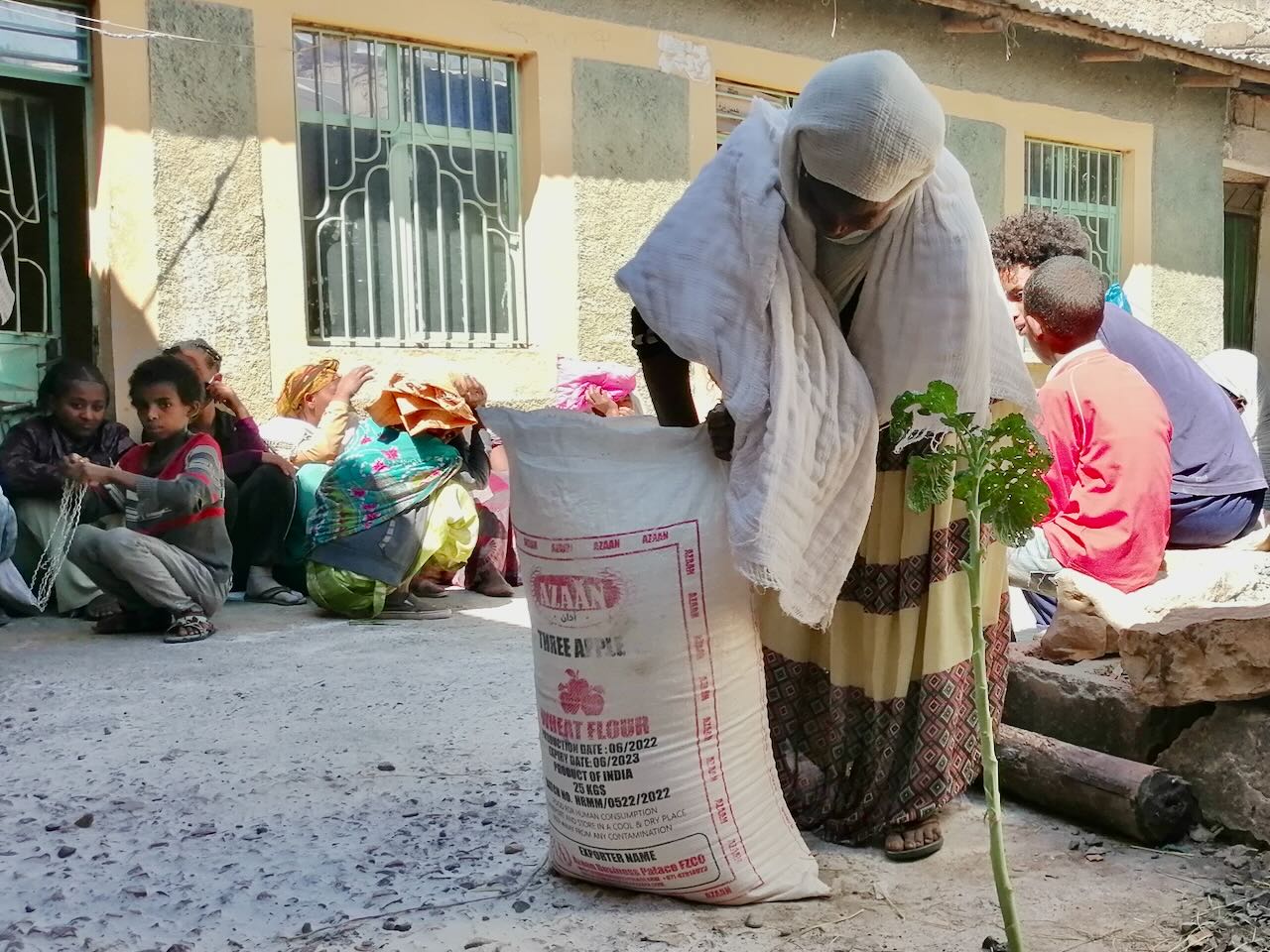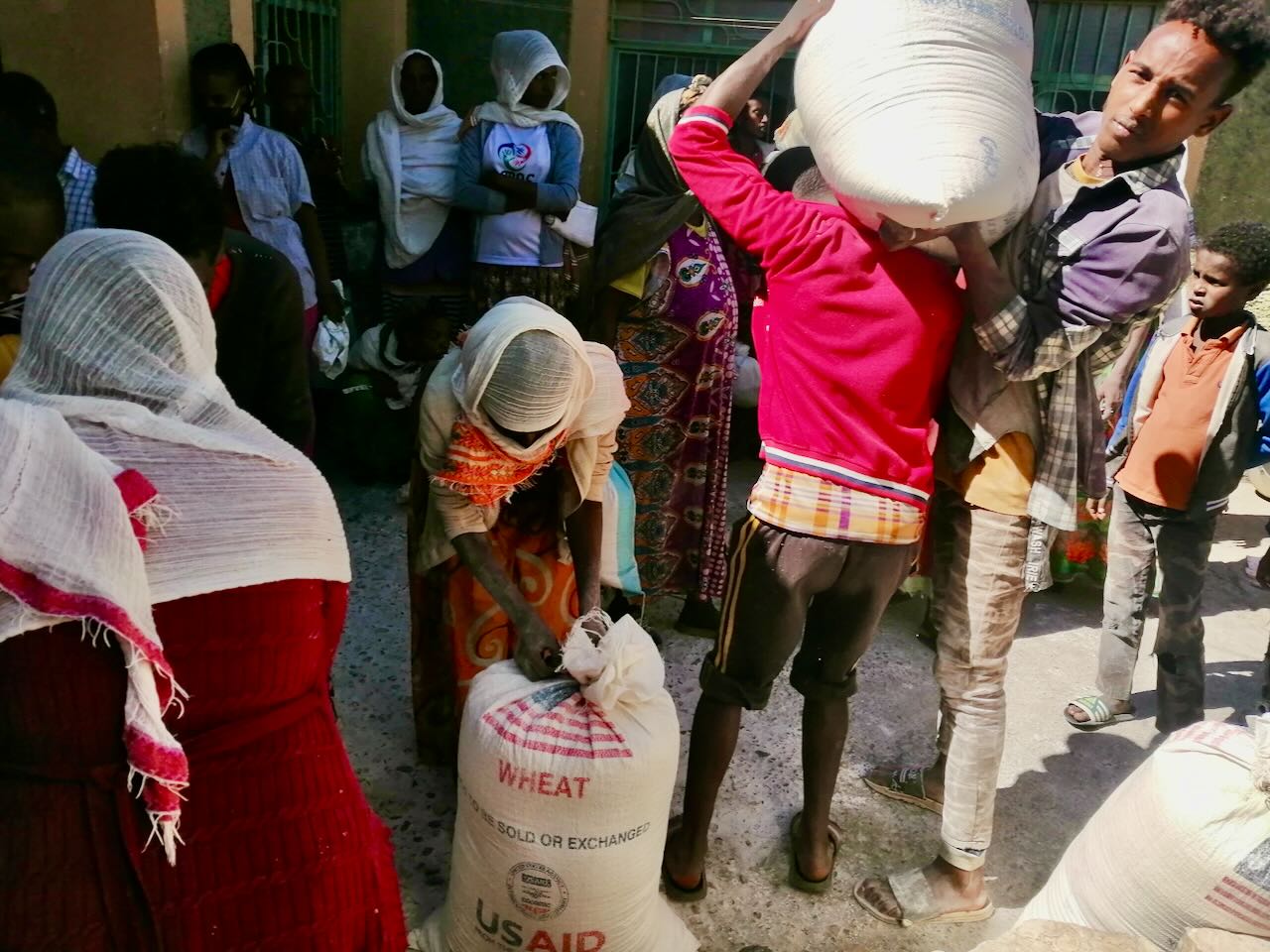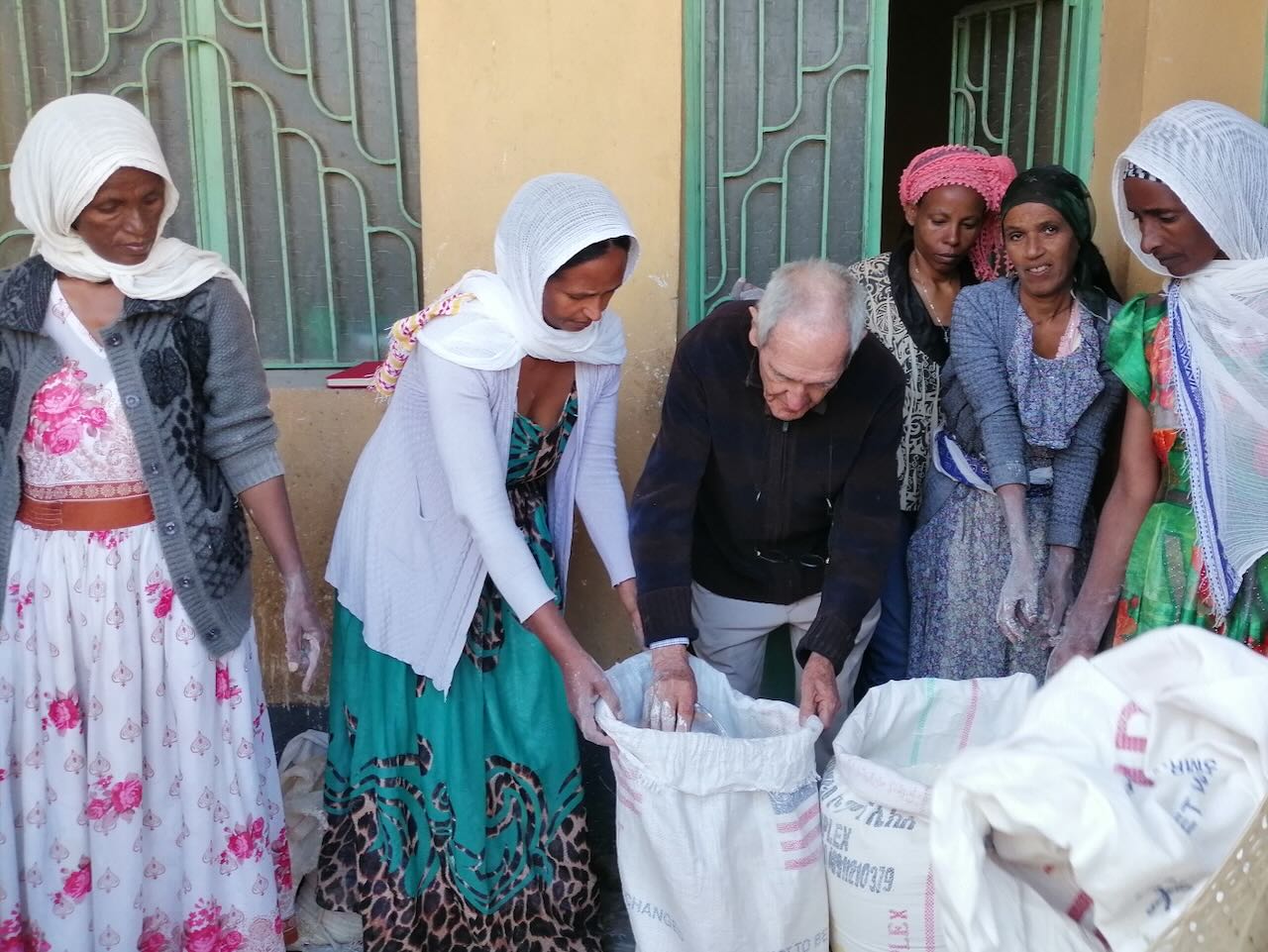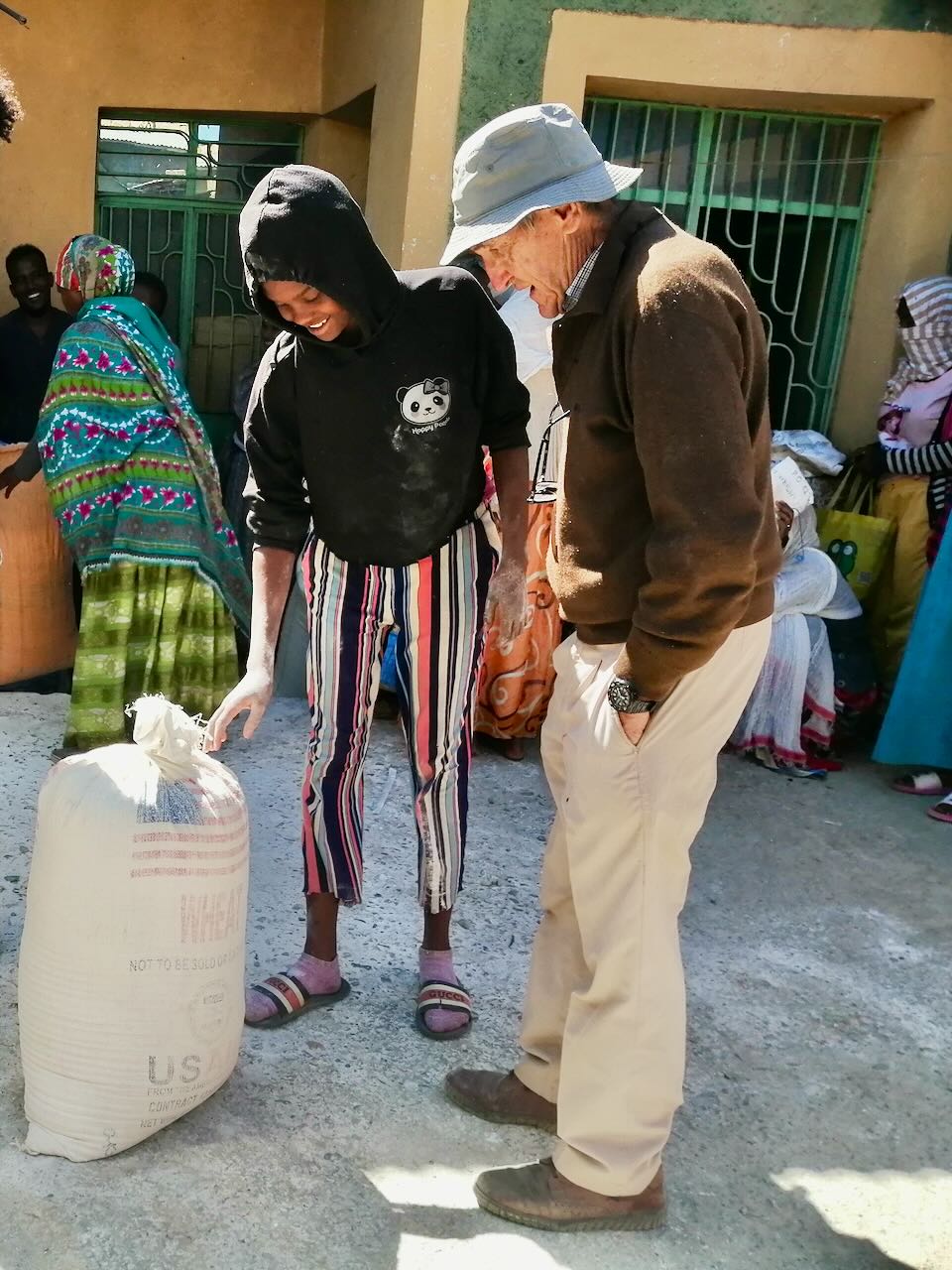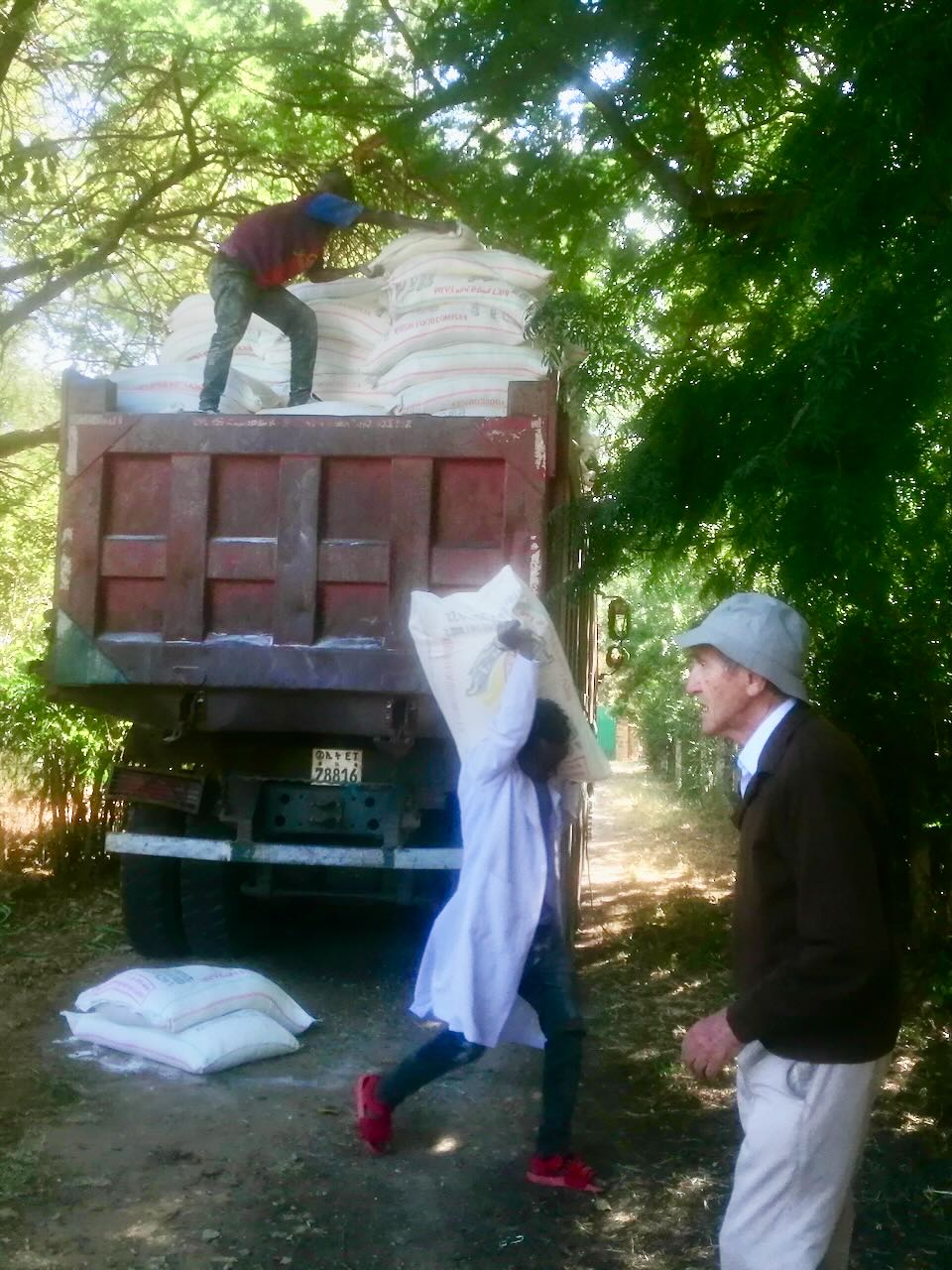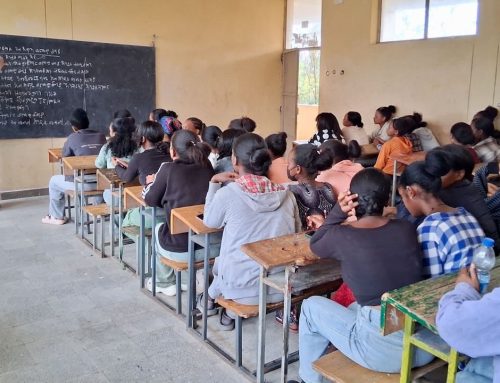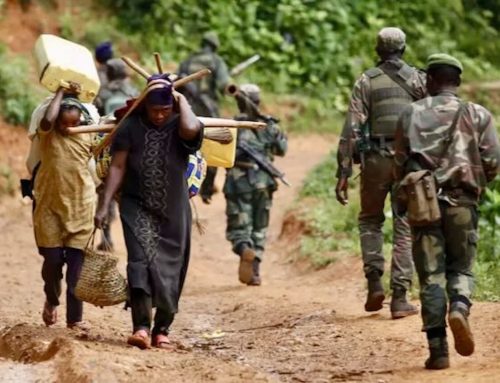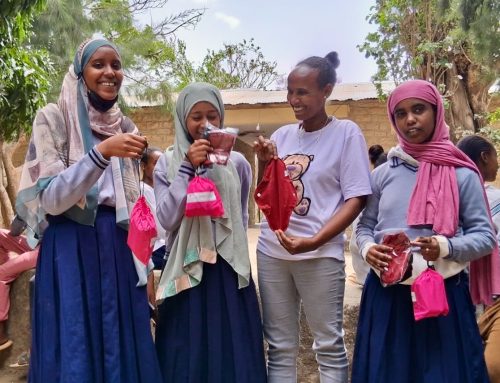Suspension of food aid to famine-stricken Tigray
After spending a few months in our country, missionary Ángel Olaran has arrived in Ethiopia and has faced the heartbreaking reality of the suspension of food aid to a famine-stricken Tigray. He has encountered the suspension of assistance by the World Food Programme (WFP) and the United States Agency for International Development (USAID), who are the main providers of food aid in Ethiopia.
Despite this difficult situation, Father Olaran is determined to continue his social and humanitarian work; and he will rely on the collaboration of our Foundation and other organizations that support his tireless efforts.
In Tigray, a region still devastated by famine, they are facing the unfortunate news that food aid has been suspended.
This suspension is due to massive diversions of aid intended for the most needy, which have led to a dramatic loss of lives due to lack of food. It is crucial that the measures taken target those responsible for these acts, rather than impacting the victims once again.
International aid rarely reached Wukro.
Analysis of the context of this humanitarian crisis
In this publication, we want to highlight the urgency of addressing this alarming situation. To do so, we present a piece by missionary Ángel Olaran, who provides us with his frontline perspective, along with relevant information gathered from an opinion article written by Jan Nyssen, a geography professor at Ghent University, and André Crismer, a doctor and member of the Tesfay Association. The article provides valuable information and analysis of the context and implications of this humanitarian crisis. Their insightful approach and expert knowledge will help us better understand the challenges and possible solutions to this pressing situation.
The testimony of missionary Ángel Olaran offers us a firsthand view of the devastating consequences of the cancellation of food aid in Tigray. Through his experiences and reflections, he invites us to reflect on the critical need for immediate action.
The war that began on November 3, 2020, between the Ethiopian federal government, the Eritrean army, and the militias of the Amhara region on one side, and the regional government of Tigray on the other, has resulted in a tragic toll of 600,000 lives lost, including massacred civilians and those subjected to starvation. These are the figures estimated by Olusegun Obasanjo, representative of the African Union, in an interview published in the Financial Times. Despite its magnitude, with many more victims than the war in Ukraine or the conflict in Sudan until the ceasefire signed in November 2022, this conflict has received little attention from the media compared to other international conflicts.
Although direct warfare has ceased, we cannot speak of a return to normalcy in Tigray. The western part of the region continues to be a victim of ethnic cleansing, remaining under the control of Amhara militias, while the north remains under the occupation of the Eritrean army. Tigray’s budgets remain blocked, resulting in a lack of salaries, a scarcity of education for three years, and the inaccessibility of agricultural inputs. This difficult situation is compounded by the recent suspension of international food aid in May.
Recently, we have witnessed an ongoing famine in Tigray, with thousands of displaced people and villagers dying of hunger. Additionally, newly arrived individuals from western Tigray also urgently require food assistance. According to the Tigray Regional Health Office, there was a 28% increase in the number of children under five years old dying from acute malnutrition between March and April. This tragic situation is mainly due to the suspension of aid in Tigray, as recently reported by El País in their ongoing coverage of the famine in Tigray titled “The Silent Artillery of Hunger in Tigray.”
The suspension of food aid by the World Food Programme (WFP) and the United States Agency for International Development (USAID), the main providers of food assistance in Ethiopia, is directly related to large-scale aid diversions. After initiating an internal investigation into these diversions, The New Humanitarian reported on the resignation of the WFP leadership in Ethiopia. However, the conclusions of the investigation have not yet been published.
For years, serious attention has been given to concerns of local diversion of food aid. It is important to recall the distribution of food aid in Tigray in 2016, where measures were implemented to prevent theft and resale of food. However, despite these efforts, diversions continued to occur. Even the national commissioner for disaster risk management, Mitiku Kassa, was removed last year due to his involvement in aid diversion, but this did not prevent the thefts from persisting.
In April, internally displaced persons in the Afar region protested the role played by government representatives in diverting aid funds. On that occasion, a senior communication official from WFP in Ethiopia stated that corruption in aid was common.
What is concerning is that high-ranking personnel from WFP, USAID, the Ethiopian army, and seven regional governments are involved in this corruption scandal related to food aid. This diversion system has been operating for years, even before the war broke out, but it intensified during the conflict. The cereals intended for hungry Tigrayans were diverted to traders and large flour factories, even reaching regions with sufficient food security in Ethiopia, such as Gambela and even Kenya.
In Mekelle, the regional capital of Tigray, the diversion of food aid is the main topic of conversation among the affected population. Given the magnitude of this humanitarian catastrophe, it is crucial to alleviate the restrictions on aid intended for the suffering and dying people of Tigray, while at the same time pursuing and holding the main culprits accountable and establishing stricter control mechanisms in aid delivery to prevent future diversions.
It is important to note that on June 9th, USAID decided to suspend food aid throughout the country, not only in Tigray, which reflects the severity of the situation. Although 186 individuals suspected of diverting aid in Tigray have been identified, we must remember that there are 20 million people in Ethiopia who currently depend on food assistance. The common citizens of Tigray and Ethiopia, who are already victims of this massive scam, should not suffer the interruption of aid again. An alternative solution could be the implementation of cash assistance programs, which would reduce opportunities for theft and would not interfere with the agricultural production of local farmers.
Since the cancellation of international humanitarian aid, there have been calls from various religious leaders in Ethiopia to demand the resumption of food aid deliveries in the Tigray region, and, among other entities, from Caritas Internationalis, the Confederation of Catholic Charities, stating that ‘the suspension of food aid in Ethiopia is inhumane’.
Written by Ángel Olaran
The missionary Ángel Olaran distributing international aid in Wukro on one of the few occasions it has reached there.
To our surprise, we have learned that the World Food Programme (WFP), sponsored by the UN and the US NGO USAID, has recently announced that due to corruption in the administrative ranks, they have suspended humanitarian aid intended for the Ethiopian population, especially in Tigray.
Humanitarian aid to Tigray was supposed to start arriving from November 2nd, 2022, once the peace agreement between the federal government and Tigray was signed. Until early May 2023, very little of that aid had arrived, and only a few families had received it, at least once. By mid-May, there were reports that it had started to arrive… and then that it hadn’t… And now they have excelled themselves: STOPPING THE SHIPMENTS – for a good cause: the fight against corruption, regardless of the cost in lives, as many will perish precisely due to the lack of the most necessities, which once again the door is closed to just when it was barely ajar. Justice demands it. Or perhaps they have realized that this is the best way to punish the corrupt.
The best way to prevent a bad harvest is not to sow.
In this case, corruption is not related to bank transfers, changes of bank accounts, or beneficiaries… something that can go unnoticed for years – it’s not about unfair practices.
How little we learn from history!
Even prior to this aborted aid, on several occasions, we have mentioned the hundreds of trucks with their large trailers that never reached their destination. The daily movement of 300 of these trucks – 100 per day – going from the port of origin or from Addis Ababa to Tigray, about 800 km, and 300 returning empty – a significant volume that could go unnoticed. When 36,500 trucks were supposed to have arrived in one year, only 500 would have arrived – at the cost of how many lives? I still remember the heartfelt words of a US Secretary of State: “When a child suffers from hunger in the world, all of humanity suffers from hunger.”
On occasion, up to 15 trucks were counted being held between regional borders. The image presented by a television network showed a few kilometers of road with trucks being held, not vanished. Corruption was never mentioned. They simply didn’t arrive. We never had confirmation that international institutions showed any interest in why this failure occurred; perhaps partly due to the absence of media correspondents, which doesn’t seem to be the case now.
How is it possible that professionals at the specialized level of WFP and USAID were unable to ensure that these shipments, with the appropriate documentation, departed and arrived at their destinations before reaching such a drastic decision!
They were pouring salt on their wounds.
On several occasions, we have heard UN Secretaries-General say that they bear the world’s health on their shoulders, so it is only natural that their members are the highest paid. No one doubts the role of USAID.
And again, the question: How is it possible that they have been unable to organize something as simple and voluminous as this without it being done in secret?
During their family meals, have they ever thought about the empty tables of so many ignored families? From the UN, as mentioned above, it has been heard that the health of humanity rests on their shoulders, and apparently, this crime against humanity does not seem to have moved them. Could this neglect be a sign of the need for a COSMIC INSTITUTION?
Have they already concluded the investigation into corruption if there ever was one? Those millions of kilograms of wheat didn’t just vanish into thin air.
It is difficult to speak of incompetence. Will we have to resort to a lack of goodwill on the part of the organizing institutions mentioned earlier, which the corrupt have taken advantage of?
Possibly, they are already planning new humanitarian aid programs, in which, among meetings, per diems, disagreements, dietary advice, and others, once again, they will have to accept receiving what represents their expenses in 5-star hotels, airplane trips in the class that their commitment to the poor demands, in order to find themselves with enough energy to give their best and ensure that they do not lack the necessary food. Or even better, as the Secretary-General of the UN announced, I believe it was in early 2020 with regard to Covid-19, a healthy, ecological, and abundant nutrition.
Images of the international aid we shared with you in the publication: Angel Olaran: “High morale… against all hope”.
To conclude this publication
With the combination of both writings, we hope to raise awareness and mobilize actions in search of an effective and prompt response to address the serious situation in Tigray. It is crucial that the international donor community quickly finds a solution to address the enormous deficit of aid and the current inaction. Measures should be directed at those responsible for the diversion and corruption, and not at the victims who are already suffering the consequences of famine in Tigray.
As we said at the beginning, despite this difficult situation, Father Olaran is determined to continue his social and humanitarian work; and he will rely on the collaboration of our Foundation and other organizations that support his tireless efforts.
With the collaboration of

